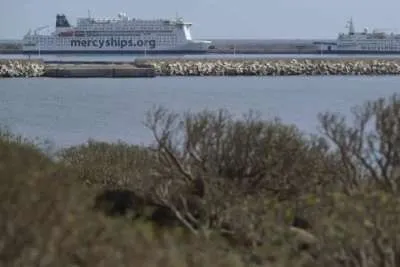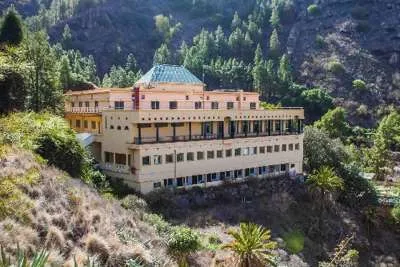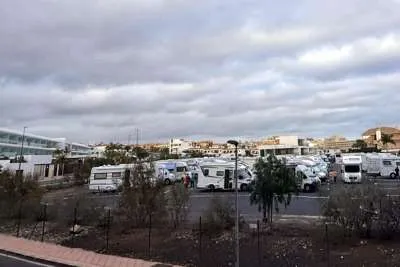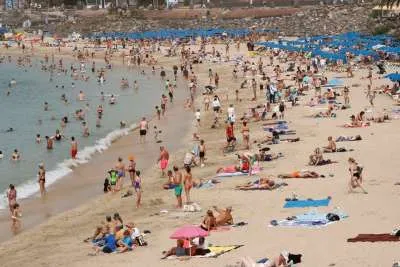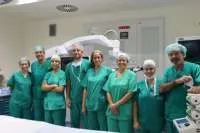From Tourism to Tech: Diversifying the Canary Islands’ Economy with Digital Jobs
- 13-08-2025
- Business
- collaborative post
- Photo Credit: Unsplash
Over the past three years, the Canary Islands have been forced to look beyond package holidays and cruise-ship stopovers. A pandemic, climate concerns, and the rise of remote work have made it obvious that a sun-and-sand monoculture is no longer enough.
Today, the conversation is about fibre-optic cables, e-sports trading desks, and tax-friendly startup hubs. Below, we unpack the most decisive pillars - location advantages, iGaming momentum, talent pipelines, and the policy toolbox, showing how they knit together into a credible strategy for long-term prosperity.
1. THE CANARY ISLANDS’ DIGITAL VALUE PROPOSITION
Perched on the edge of Europe and a stone’s throw from Africa, the archipelago sits in the same time zone as London and only one hour behind Berlin. That matters when you’re running real-time services such as online gaming or financial trading. Add ultrafast subsea cables and a cost structure lower than mainland Spain, and you get an offer many companies now describe as “Lisbon costs with Cape Town weather.”
Tax and Infrastructure: The Twin Catalysts
Before diving into sector specifics, it’s worth pausing on two structural levers that make relocation more than a lifestyle play.
- Zona Especial Canaria (ZEC). A special economic zone that caps corporate tax at just 4%. Businesses also enjoy a 0% rate on dividends paid to foreign shareholders, provided they reinvest locally.
- Connectivity. Canary Islands already benefit from multiple high-capacity cables delivering round-trip times of 30–50 ms to mainland Spain and Western Europe - vital for latency-sensitive applications like online gaming. Looking ahead, the GC-LNZ-FU cable project (2023-2026) will interconnect Gran Canaria, Lanzarote and Fuerteventura in a resilient ring, boosting redundancy and bandwidth throughout the archipelago
Put together, tax relief and infrastructure clarity give CFOs and CTOs equal reason to sign the lease.
2. IGAMING: FROM NICHE TO FLAGSHIP EXPORT
The most visible beneficiary of the Islands’ strategy is iGaming-online casinos, sports-book platforms, and the fast-growing world of esports wagering. Operators need round-the-clock lines of creative talent, compliance officers, and multilingual customer support, and they need them in a jurisdiction that pairs EU regulation with attractive margins.
After Malta’s market saturation and Gibraltar’s Brexit complications, Las Palmas and Santa Cruz have stepped into the gap. Pentasia, Kindred Group, and Bet365 are all recruiting analysts and anti-money-laundering specialists from the University of Las Palmas de Gran Canaria, where a new elective on “RegTech for Online Gaming” bridges academia and industry. Read more about actual iGaming jobs: igamingrecruitment.io.
Employment Quality, Not Just Quantity
Critics sometimes dismiss gaming jobs as transient, but the career ladder tells a different story. A junior sportsbook trader starts at €24,000, reaches €35,000 by year three, and can move into product-owner roles or into fintech risk. Those numbers dwarf traditional hospitality wages and, crucially, they keep graduates from migrating to Madrid or Berlin.
3. BUILDING AND KEEPING TALENT
Economic diversification fails without people ready to write code, manage servers, or draft data-privacy policies. The Canary Islands are attacking the talent puzzle from three fronts: formal education, intensive bootcamps, and lifestyle-driven immigration.
Universities Go Agile
Both the University of La Laguna (ULL) and the University of Las Palmas de Gran Canaria (ULPGC) have shifted from slow five-year degrees to modular tracks where students can minor in cloud architecture or cybersecurity. Industry insiders sit on curriculum boards, ensuring that the SQL students learn in class resembles the PostgreSQL running production databases.
Bootcamps & Career Switchers
Reboot Academy, a 12-week full-stack JavaScript program, enrols a mix of tourism workers, language graduates, and returning emigrants. With a 92 % placement rate within 60 days, it proves that up-skilling isn’t theoretical. Alumni can be found today debugging React front-ends for Berlin fintechs while watching the sun set over Teide-without leaving home.
Digital Nomads as Semi-Permanent Residents
Remote work has turned “wintering in the Canaries” into “living in the Canaries, full stop.” Coworking spaces in Las Canteras and La Orotava now run waiting lists, and local councils have responded by converting underused civic buildings into fibre-ready hot-desks. The key insight: every programmer who sticks around for 12 months becomes a mentor, an employer, or at the very least a consumer of local services.
4. POLICY, CAPITAL, AND THE MISSING MIDDLE
Incentives without coordination risk scattering resources; coordination without capital just stalls ideas. The regional government is trying to hit both notes.
Faster Paperwork, Smarter Money
The new “Digital One-Stop Window” merges permits from five agencies into a single online dashboard, promising incorporation in ten days instead of forty-five. In the meantime, Sodecan will only provide co-investment up to 500,000 euros, after having attracted private seed money, prodding startups to make it to market validation before they rely on government money.
ESG and Green Energy Sweeteners
Companies subject to strict environmental reporting often rule out island locations for fear of diesel-powered grids. The Canaries flip that narrative: hydro-wind plants like Gorona del Viento supply 60 % of El Hierro’s electricity, and offshore-wind auctions around Gran Canaria aim to push the whole archipelago beyond 40 % renewables by 2030. That allows tech firms to tick their ESG boxes without buying offset credits.
5. CHALLENGES AND THE PATH FORWARD
Optimism must coexist with realism. Housing inflation has spiked in Las Canteras; foreign talent still hesitates over Spanish bureaucracy; and locals worry about cultural dilution. None of these are deal-breakers, but they require concrete steps:
- There is inclusive zoning, which pairs a new office building with affordable housing.
- Scholarship funds earmarked for Canarian youth pursuing AI and data-science degrees.
- Continued simplification of immigration for non-EU specialists without eroding labour standards.
If stakeholders coordinate, the Islands can export high-value digital services while preserving social cohesion.
Conclusion: A New Economic Mix Takes Shape
The Canary Islands will not abandon tourism; the beaches and volcanoes will keep flights full. But diversification is no longer a buzzword-it’s an operational plan. A 4% tax zone, universities aligned with industry, and an iGaming sector that pays double the average wage all point to a maturing digital economy.
In 2020, tourist arrivals collapsed by 70% due to the pandemic, yet tech and remote-work payrolls contracted by less than 5%, proving resilience in numbers. Couple that with a corporate tax rate six times lower than the Spanish mainland’s 25 % and the attraction becomes obvious to CFOs and graduates alike.
The real victory will be measured not just in balance sheets but in whether Canarian youth see a future at home that matches any offer abroad. For the first time in decades, that future looks convincingly bright, broadband-fast, and bathed in Atlantic light.
Other articles that may interest you...
Trending
Most Read Articles
Featured Videos
TributoFest: Michael Buble promo 14.02.2026
- 30-01-2026
TEAs 2025 Highlights
- 17-11-2025


















